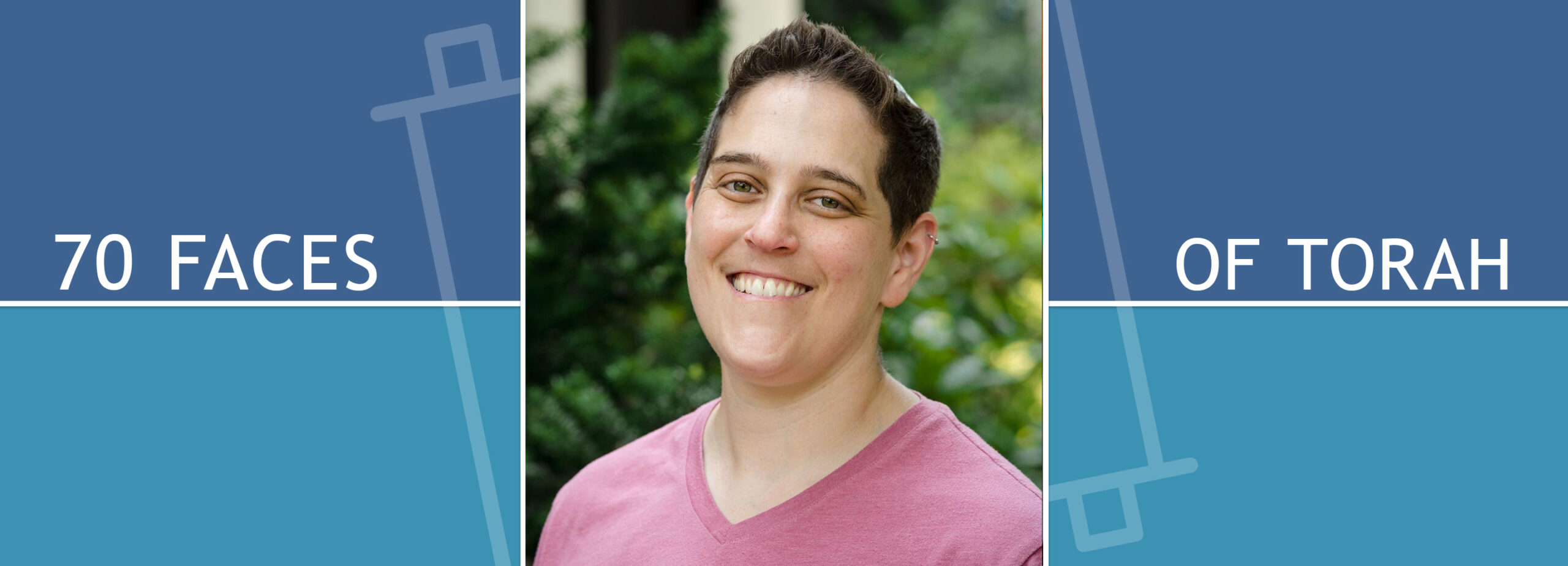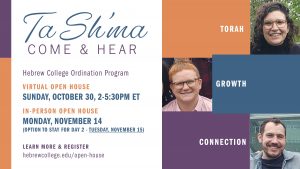Alumni Defining Enough

Sukkot (Leviticus 22:26-23:44)
The Fall 2021 issue of Yes! Magazine is the “The How Much is Enough? Issue.” I know this because it says so on the cover. A year after its arrival in the mail, this issue still sits at the top of my pile of unread magazines. The size of the pile ebbs and flows depending on any number of factors. In any case, this issue has stayed untouched longer than others. A few weeks ago, I realized that it’s still there because just the cover is enough to challenge me spiritually.
How much is enough? Did we put enough edamame in the kiddo’s lunch? Do I have enough time to run this errand or have coffee with that friend? Are we giving enough of our money away? If we give away more money, will we still have enough? These questions reveal more questions—What do I need? What should I prioritize? Layer onto these questions the different contexts, life experiences, and identities that we all carry, and my discomfort grows, moving from a pit in my stomach to an ache in my chest, straight through my heart. Even navigating the question, “How much is enough?” is overwhelming.
While the magazine lies unread, beckoning to me from the top of the stack, the experience of dwelling in the sukkah offers a more joyful opportunity to confront this question. We read in the Book of Leviticus:
בַּסֻּכֹּת תֵּשְׁבוּ שִׁבְעַת יָמִים כׇּל־הָאֶזְרָח בְּיִשְׂרָאֵל יֵשְׁבוּ בַּסֻּכֹּת׃
(42) You shall dwell in booths for seven days; all citizens in Israel shall dwell in booths (Lev 23:42).
The root of the word “תֵּשְׁב֖וּ / you will dwell” is י-ש-ב, meaning to sit, to remain, or to dwell. Each of these has a sense of staying still, of being in one place. The sukkah becomes our central location throughout the festival, our physical touchstone, and (according to some midrashim) an embodiment of the divine presence. It is where we eat, drink, and live, according to the Shulchan Aruch (Orach Chaim 639:1). Our daily rhythms shift from our indoor homes to within the walls of the sukkah. This shift is so dramatic that the sukkah becomes our permanent or fixed dwelling, and our homes become temporary (Mishnah Sukkot 2:9). It is in this reorientation that our hearts might open to a deeper understanding of “enough.”
For me, the reorientation begins with setting up the sukkah. To dwell in the sukkah, we first need to build (or locate) one. Carrying steel pipes, walls, bamboo poles, and skach mats across the street for our community sukkah I consider if we have everything we need for this project. Some years we have enough time and volunteers to set up without stress, other years we have just enough to get the job done, and yet others, we leave the work for another day. The meaning of “enough” shifts as we realize we could use one more step stool, but get the job done nonetheless.
The structure itself must be substantial enough to withstand an ordinary wind, yet two and a half walls are enough to consider the sukkah kosher. The skach that forms the roof should be thick enough to provide more shade than sun, while ideally being spacious enough to afford us the ability to see large stars through it. A sukkah embodies the shifting definition of “enough,” depending on the perspective we are viewing it from.
Apropos of this shifting, Rabbi Alan Lew writes in his book, “This is Real and You are Completely Unprepared,” that the sukkah
…exposes the idea of a house as an illusion. The idea of a house is that it gives us security, shelter, haven from the storm. But no house can really offer us this. No building of wood and stone can ever afford us protection from the disorder that is always lurking all around us. No shell we put between us and the world can ever really keep us secure from it.
Just as the sukkah exposes the idea of a house as an illusion, it also exposes that “having enough” is an illusion. Though we are commanded to dwell in the sukkah for seven days, its partial walls and see-through roof are not actually fit for permanent dwelling. They are enough for the moment, but not enough to provide lasting shelter. The idea that we might balance the enough of today with the enough of the future is an illusion.
Confronting this illusion is exactly what makes the question of “How much is enough?” so daunting. The sukkah also holds the antidote. It is in the sense of contentment, of “enoughness” that washes over us when we gather in the sukkah with loved ones. On the best days, I experience a sense of abundance.
Rabbi Lew continues:
In the sukkah, a house that is open to the world, a house that freely acknowledges that it cannot be the basis of our security, we let go of this need. The illusion of protection falls away, and suddenly we are flush with our life, feeling our life, following our life, doing its dance, one step after another.
It is in that openness to the world that might find a way forward. The same magazine cover reads “Enough for Everyone: Right-sizing our Living Standards and Learning to Share.” As I moved through Yom Kippur this year, I was acutely aware of how my hunger and fast might help build empathy with those who go hungry every day, and also just how different those experiences are. The same is true for my experience of building a sukkah and those who construct temporary dwellings each night. The call is not only to make sure there is enough for us, the call is to make sure there is enough for everyone. I do not know what “enough” will mean tomorrow, next year, or down the generations, but I do know that there are people who do not have enough now. Our work is to let go of the illusion, reach for a sense of abundance, and listen to the call toward a different distribution of what we collectively possess.
Please contact the author if you’d like to share any feedback.
Rabbi Becky Silverstein ’14 (he/him/his), a graduate of the Rabbinical School of Hebrew College, believes in the power of community, Torah, and silliness in transforming the world. Becky is on the faculty of SVARA: A Traditionally Radical Yeshiva, and is the co-director of the Trans Halakha Project.
If you or someone you know is considering the rabbinate, please join us or share information about our fall Open Houses (virtual and in-person). Learn more and register here.


